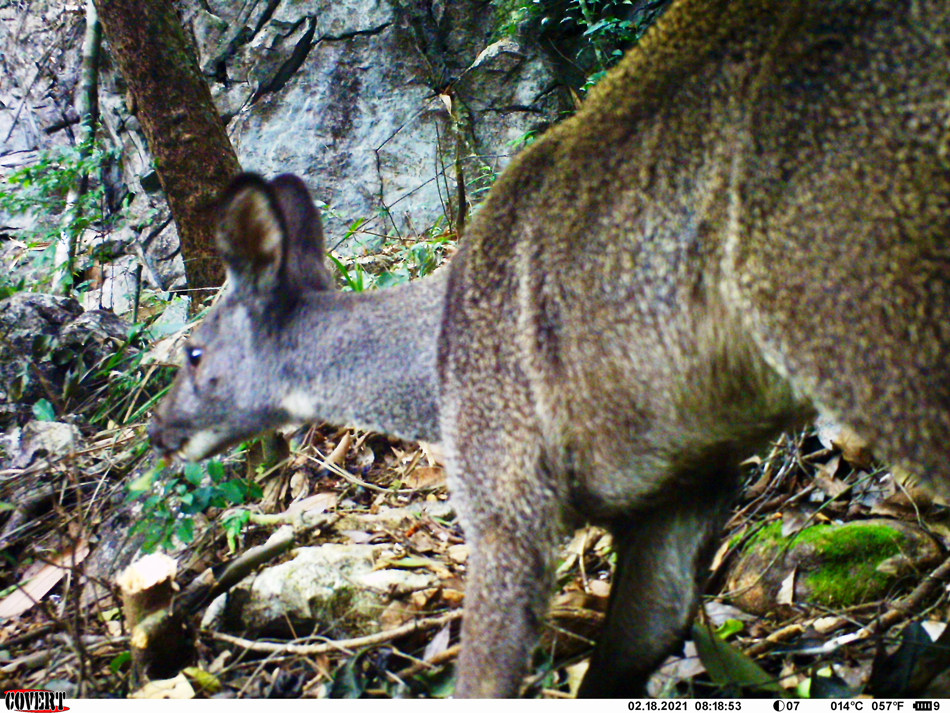The forest musk deer Moschus berezovskii is categorized as Endangered on the IUCN Red List, having declined precipitously, primarily through unsustainable hunting to supply the trade in musk. Although the majority of the species’ range lies in China, it extends marginally into north-east Viet Nam. In the late 1990s, the population in Viet Nam was estimated to be 200 individuals, and declining, but there have been no updates on the species’ status in Viet Nam since then, and given the high hunting pressure in many of the country's protected areas, it was unknown whether the species persists.
In January 2021, scientists with the Vietnam National University of Forestry were provided with photographs of a musk deer that had reportedly been captured by local hunters in the buffer zone of a protected area in north-east Viet Nam. Follow-up camera-trapping during 3–19 February, with 10 cameras set in mountainous karst habitat within the reserve, resulted in two photographic sequences of musk deer from two of the 10 cameras (it is unclear whether the photographs represent one or two individuals). To our knowledge, these photographs provide the first confirmation in more than 2 decades that the species persists in Viet Nam.
We recommend additional surveys of the musk deer in the protected area where it was recorded, and surveys in other karst areas in northern Viet Nam to assess if other populations survive. It is likely that unsustainable hunting through the setting of indiscriminate wire snares is a threat to any remaining musk deer, as it is to other large mammals. We recommend increased snare removal efforts, education and outreach with local communities, and the implementation of proactive wildlife crime prevention approaches.

Forest musk deer Moschus berezovskii camera-trapped in February 2021 in Viet Nam.




